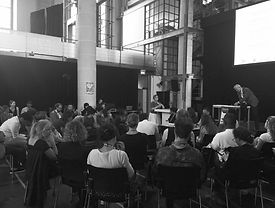AMSTERDAM
FREEDOMS
DIGITAL RIGHTS IS HUMAN RIGHTS
In the midst of June and as a part of the Connect Europe project the partnership behind met in the adventurous city of Amsterdam, Netherland.
Here the Dutch partners, Netwerk Democratie, had invited us to join WeMakeThe.City at the conference, Cities for Digital Rights, that lit a light over how digitalization of the public service and spheres affect our citizens rights. As part of the project the conference had a specific focus based on the chapters of EU Charter of Fundamental Rights and on this day, we would explore the theme of chapter II (Freedom) in connection with the concerns and visions of the citizens.
In three sessions we explored the right to freedom from the European charter of fundamental rights and discussed the requirements for freedom to flourish in our current societies. The day consisted of 3 program sessions:
• Free city, free citizens
• How to involve citizens in safeguarding freedom in the digital society
• How to empower good practice?
This issue is highly relevant for the civil society to engage in as the digital is just another platform for us to fight for human rights in. So much of modern city development is about finding and creating smart technological solutions to the challenges facing access to public service, infrastructure, security and information. But with modern solutions comes modern problems.
Obviously, as digital rights activist from Toronto, Bianca Wylie put it, “we must be aware of the dilemmas between the need for effective digital solutions as well as the right of privacy.” But beyond the question of security we face the issue of access.
At first we easily run the risk of a digital divide between those who has the necessary technology like smartphones and computers as well as the knowhow to access the services – and those who run the risk of being left behind modern welfare solution due to technical inadequacy when the digital development takes off. As deputy mayor in Milan, Roberta Cocco pointed out, we run the risk of providing worse service as for example citizens access to personal information, certificates etc. if they do not have the technical knowhow to access this.
We must therefore constantly be aware of the privilege that lies within the solutions we offer in the digital world doesn’t mimic the inequalities we experience in the analog. And as Sennay Ghebreab, a Neuroinformatic, puts it, “the digital easily becomes a space for already existing inequalities.” Therefore, we must assure that the rights of free speech, gathering and organizing is translated unto the digital sphere. Because digital rights are human rights.


